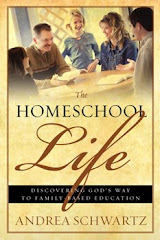There were many instances as a child and young adult where my actions and attitudes deeply hurt my dad, cutting across the fabric of his beliefs. However, like the father in the parable of the Prodigal Son, my father was ready to embrace me again and treat me as his child, never abandoning hope that I would repent. I cannot recall a time that I felt he acted hypocritically or inconsistently with his beliefs. My father was a man of integrity
Daddy played a significant role in the lives of my three children despite the fact that we lived 3000 miles away from each other and saw each other infrequently. He remained up to date on the goings on in our household and became a part of our homeschool environment, rewarding the children when they made use of the dictionary (most likely his favorite book after the Bible) by paying them for every definition written out and returned to him. There were times that my son, feeling the pinch for funds, would quickly write out definitions to put in the mail knowing his reward would soon follow.
My father was among the smartest men I have ever known. He was well read, spoke a number of languages, and could tell great stories. I wish I had faithfully recorded his recollections about his family and his career as a general practitioner. He lived out his pro-life convictions, never prescribing anything that would end a pregnancy and encouraging women who were contemplating abortions to have their babies. He was supportive of our family’s pro-life work and always maintained that God was the Giver of life.
My father was no longer able to care for himself in 2000 and would often become disoriented. Yet even at times when he could not see or found it hard to remember immediate things, I could recite the opening lines of Psalm 23, The Lord’s Prayer, or the Apostles Creed and he could finish them without flaw. These words were truly hidden in his heart. His favorite passage of Scripture came from John 11 when Mary and Martha speak to Jesus after Lazarus’ death:
"Lord if you had been here, my brother would not have died. But I know that even now God will give you whatever you ask."My father no longer sees through a glass dimly, but sees Jesus Christ face to face. He has entered into the joy of the Lord.
Jesus said to her, "Your brother will rise again."
Martha answered, "I know he will rise again in the resurrection at the last day."
Jesus said to her, "I am the resurrection and the life. He who believes in me will live, even though he dies; and whoever lives and believes in me will never die. Do you believe this?"
"Yes, Lord," she told him, "I believe that you are the Christ, the Son of God, who was to come into the world."










